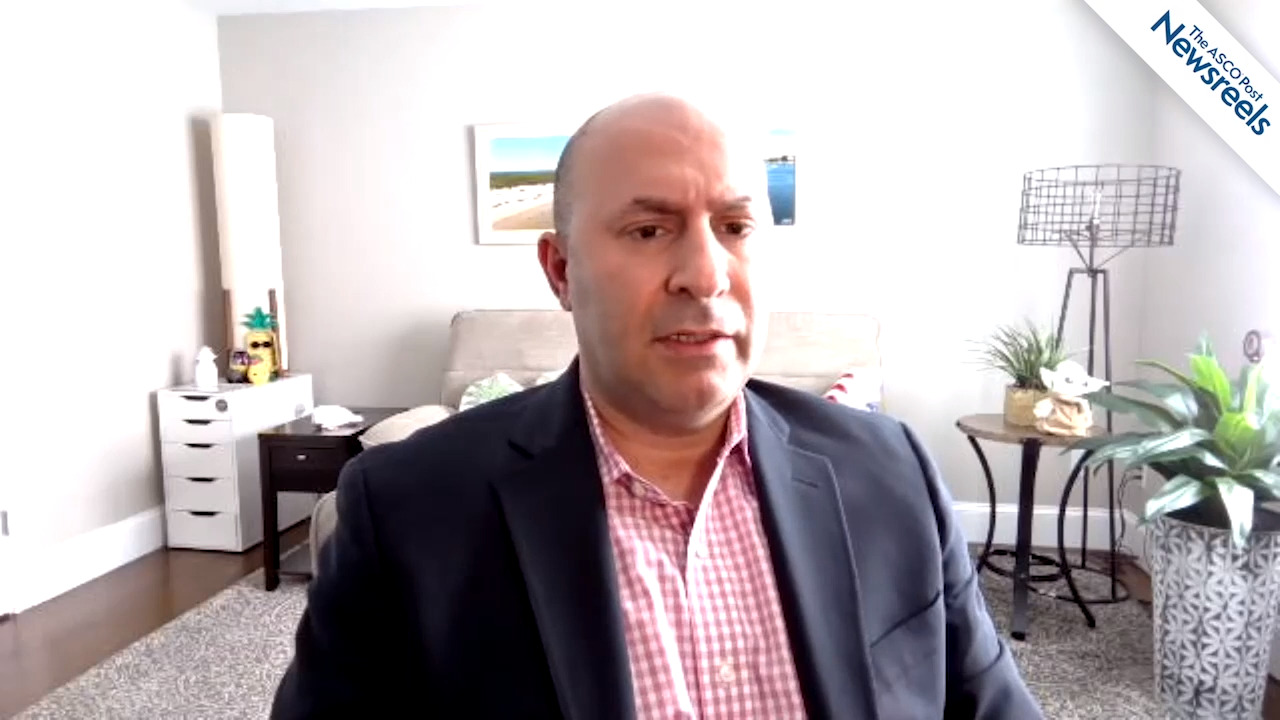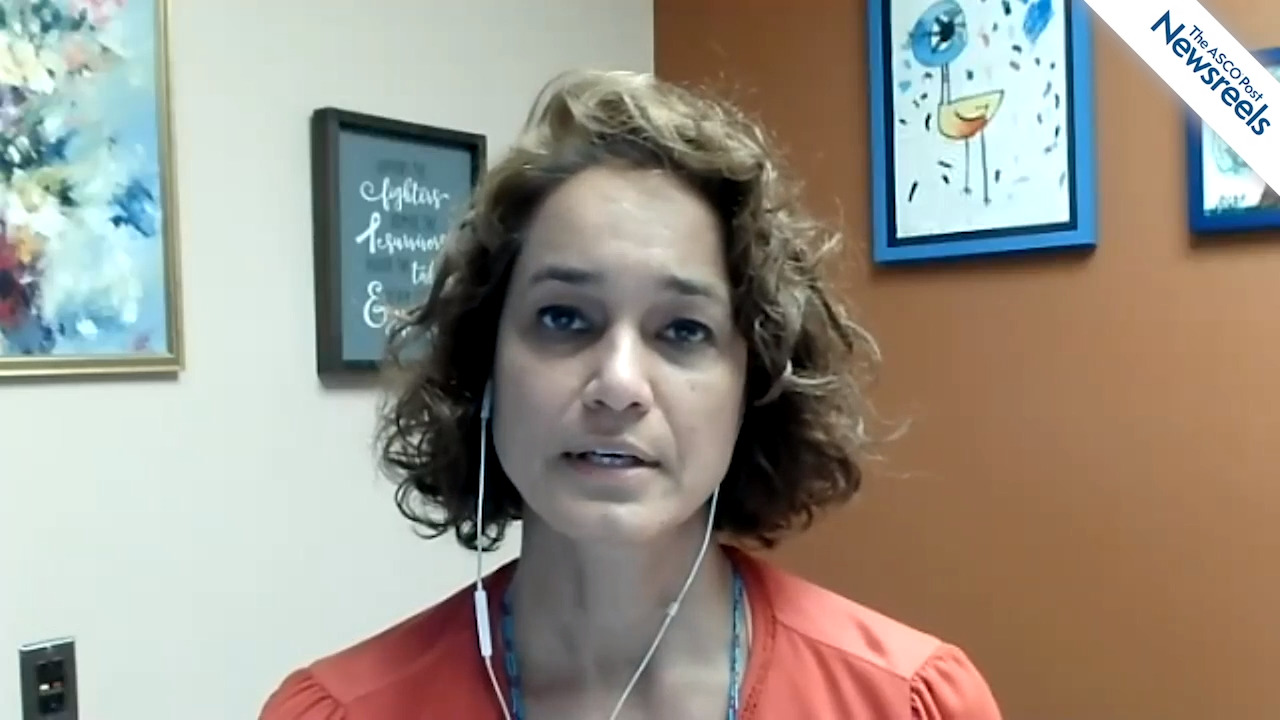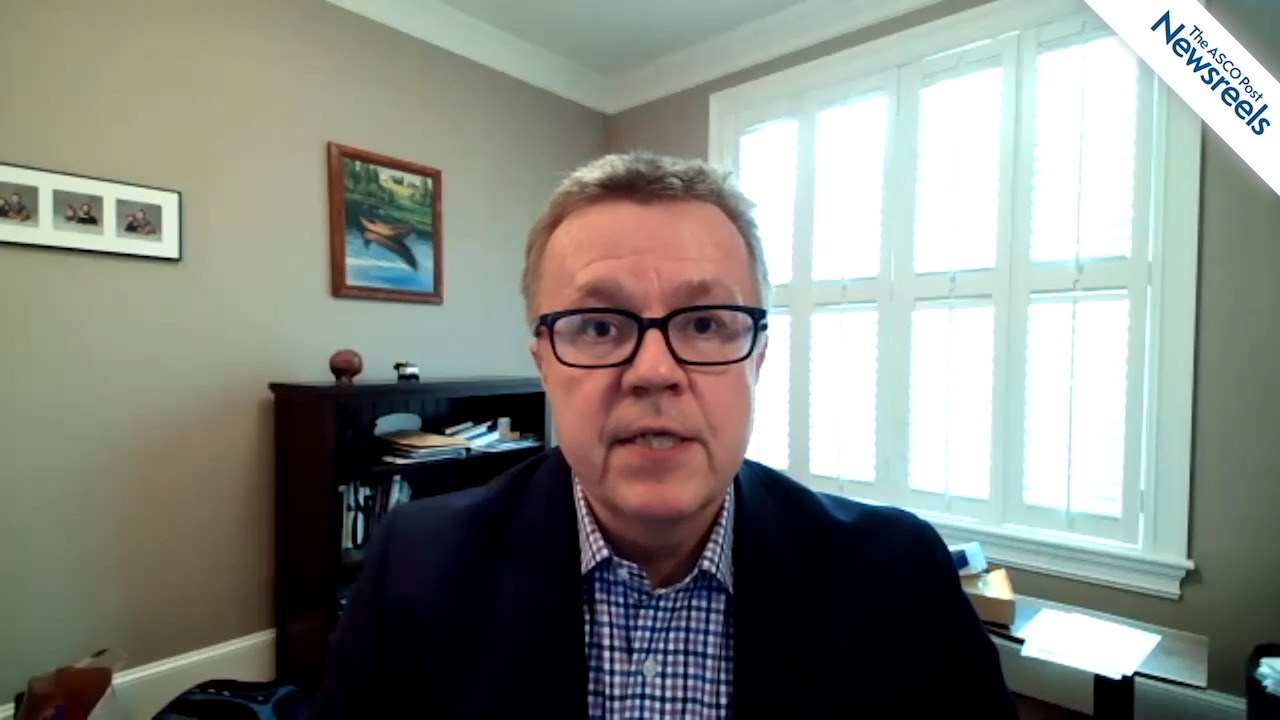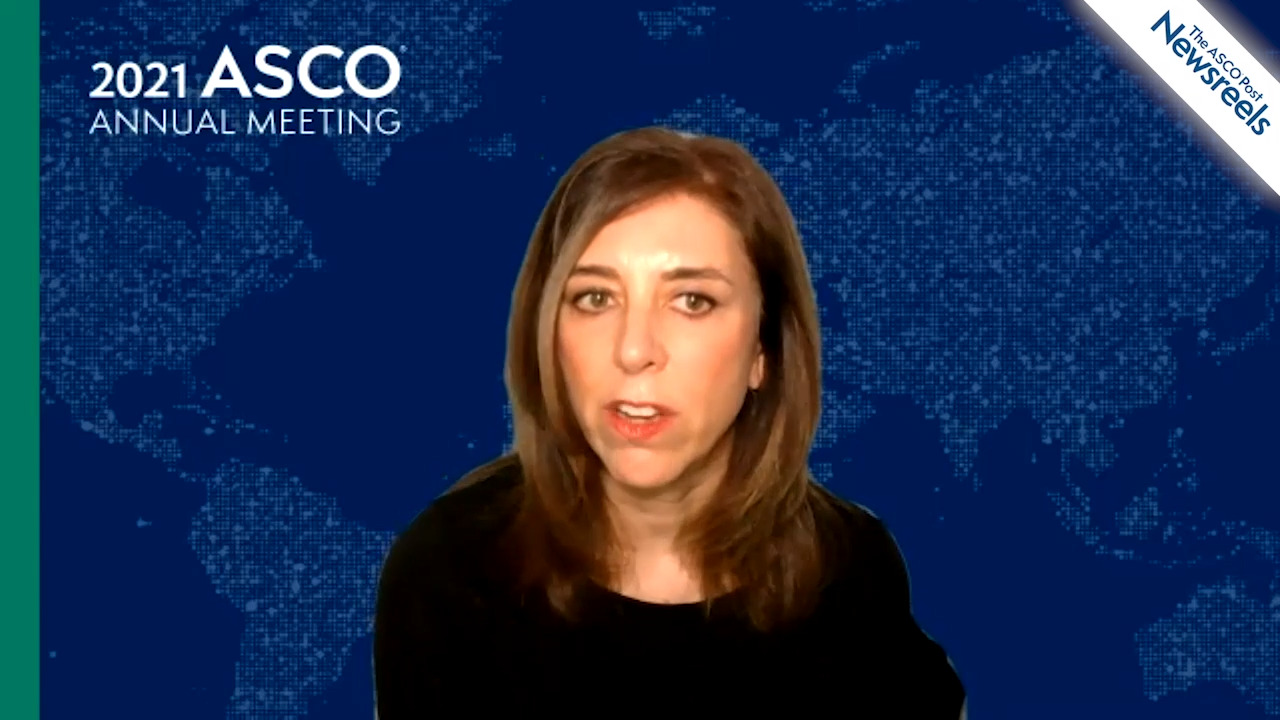Bijal D. Shah, MD, on CLL: CAR T-Cell Therapy With Brexucabtagene Autoleucel
2021 ASCO Annual Meeting
Bijal D. Shah, MD, of the H. Lee Moffitt Cancer Center, discusses phase II results of the ZUMA-3 study, which evaluated brexucabtagene autoleucel (KTE-X19), an anti-CD19 CAR T-cell therapy, in adults with relapsed or refractory B-cell acute lymphoblastic leukemia (Abstract 7002).
The ASCO Post Staff
Peter C. Black, MD, of the Vancouver Prostate Centre, University of British Columbia, reviews three studies on early detection and treatment of Black patients with prostate cancer: a large-scale analysis of genomic profiling; the use of PSA screening; and integrating a patient-specific genomic classifier to improve risk classification and treatment recommendations for Black men (Abstracts 5003, 5004, and 5005).
The ASCO Post Staff
Toni K. Choueiri, MD, of Dana-Farber Cancer Institute, discusses phase III results from KEYNOTE-564, which evaluated the safety and efficacy of pembrolizumab in the adjuvant treatment of patients with renal cell carcinoma who have undergone nephrectomy for intermediate-high or high-risk disease or no evidence of disease (Abstract LBA5).
The ASCO Post Staff
Debora S. Bruno, MD, of Seidman Cancer Center at Cleveland Medical Center, discusses study findings that show Black patients with advanced or metastatic non–small cell lung cancer tend to be less likely to undergo biomarker testing or to be treated in clinical trials than White patients. Recommended broad-based testing, says Dr. Bruno, may help ensure equal access to quality care and clinical trials (Abstract 9005).
The ASCO Post Staff
Pasi A. Janne, MD, PhD, of Dana-Farber Cancer Institute, discusses study findings that show patritumab deruxtecan is effective in patients with EGFR-mutated and inhibitor-resistant non–small cell lung cancer. Dr. Janne also explains why targeting HER3, a mutation expressed in most EGFR-altered cancers, is a beneficial treatment approach (Abstract 9007).
The ASCO Post Staff
Ann S. LaCasce, MD, of Dana-Farber Cancer Institute, discusses results from the CALGB 50801 Alliance study, which showed that a PET scan–adapted approach may reduce the need for radiation treatment and may improve progression-free outcomes in patients with stage I/II bulky classic Hodgkin lymphoma (Abstract 7507).





